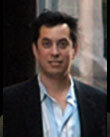Guo Huang, Ph.D.
Research Interests:
Comparative study of heart development and regeneration, ischemic heart diseases, stem cell, cardiomyocyte proliferation, regenerative biology
Summary:
The ability to regenerate damaged or lost tissues varies dramatically across organisms and developmental stages. For example, heart regeneration is robust in adult zebrafish and newborn mouse while very limited in adult mouse and human. This presents a particular problem for patients with a heart attack who suffer from a significant loss of heart muscle cells and subsequent life-threatening functional deterioration of the heart.
By taking a comparative approach to study regenerative versus non-regenerative heart repair processes in zebrafish and mouse, we seek to uncover ancestrally conserved injury responses and more importantly, to identify the signals blocking regeneration in the mammalian heart and consequently new treatment strategies for heart diseases.





